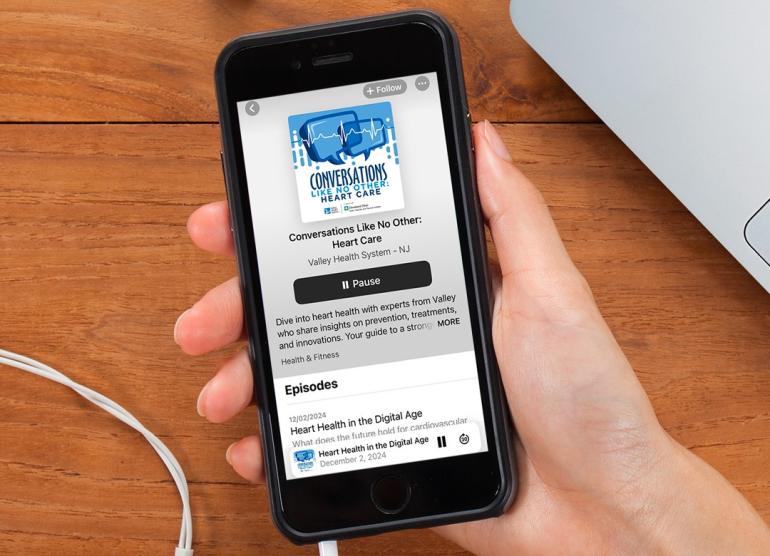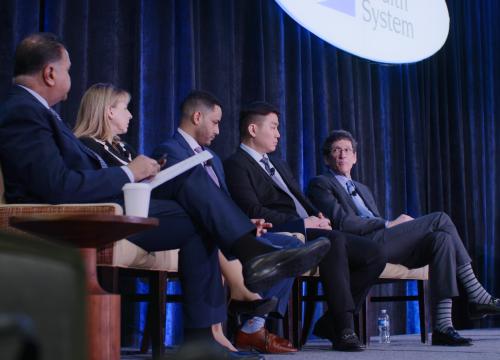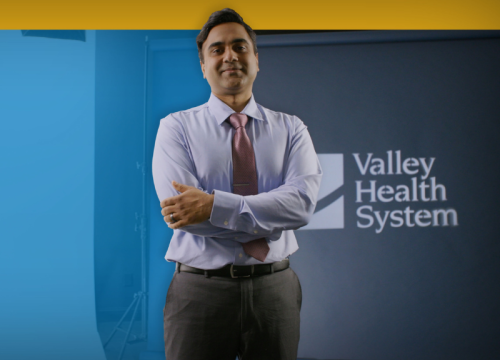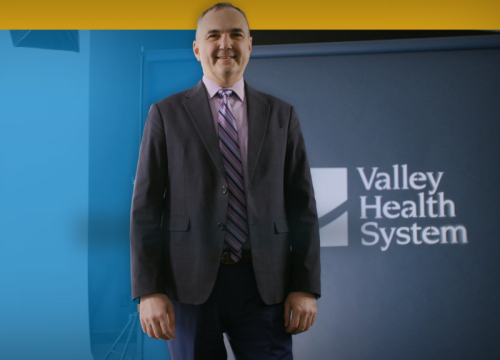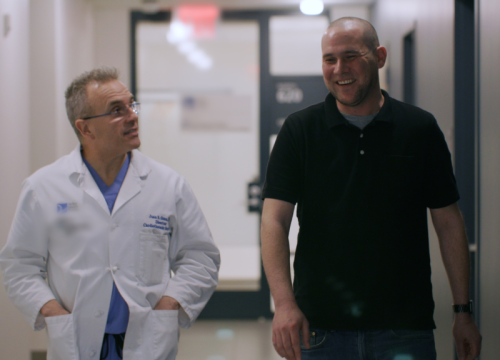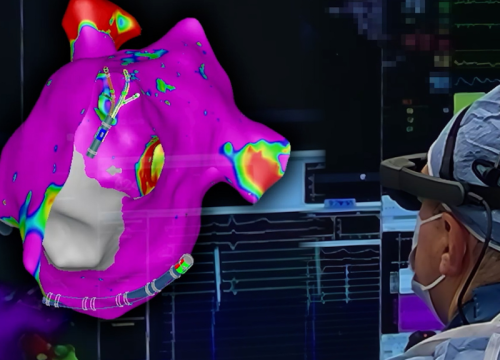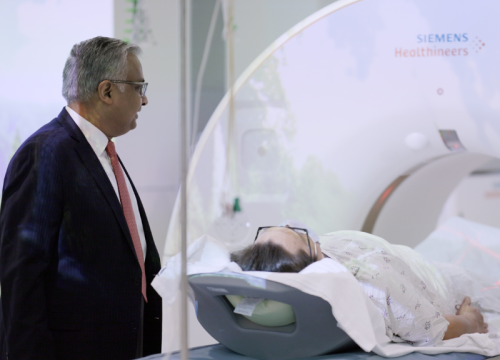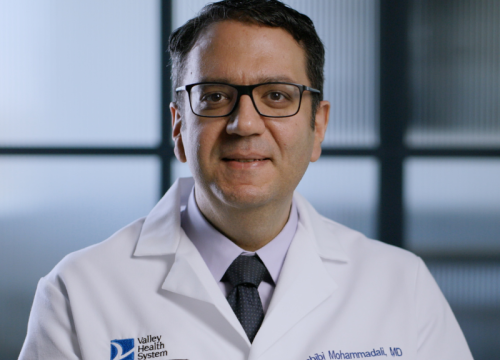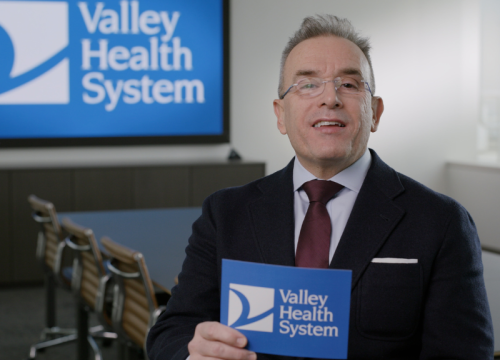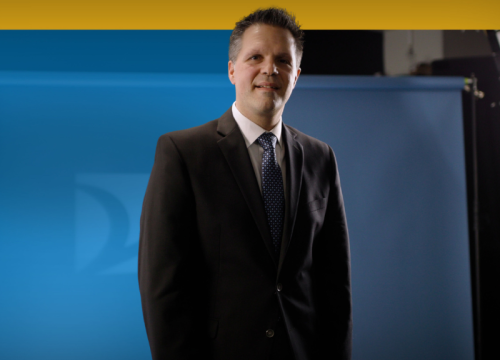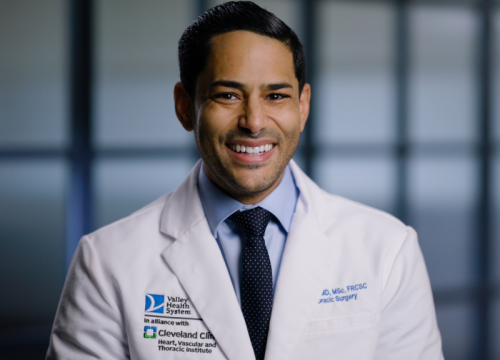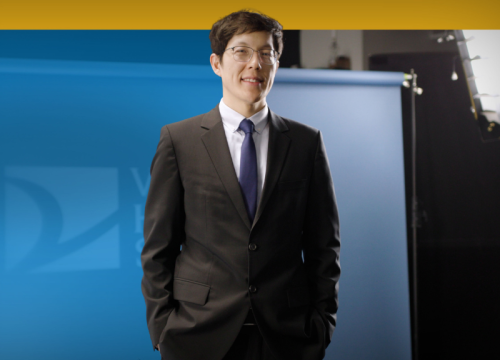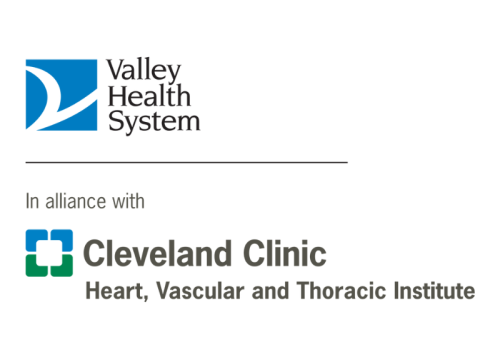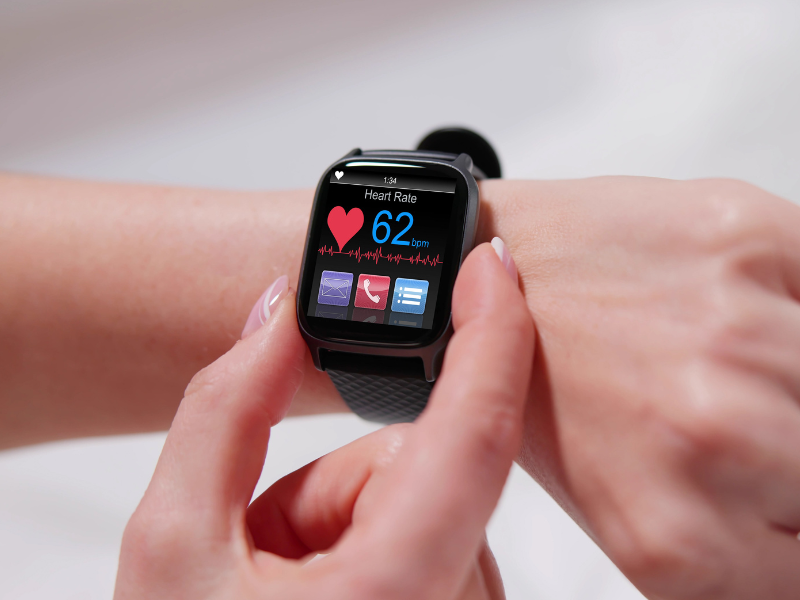
Cardiovascular care has seen remarkable advancements in recent years, and at Valley’s Heart and Vascular Institute, these innovations are making a real difference in patients’ lives.
In our debut episode of Conversations Like No Other: Heart Care, Suneet Mittal, MD, Chair of the Cardiovascular Service Line for Valley Health System, shares his insights into how technology and research are shaping the future of heart health.
Here are some highlights from the conversation:
Host: How have innovations in technology transformed the way we approach heart health and treatment in recent years?
Dr. Mittal: One of the biggest advances has been smart technology. Today, people walk around with smartwatches or smartphones that can record physiological signals. Many track their activity levels, heart rates, or even heart rhythms. In the hospital setting, we’ve seen remarkable progress with minimally invasive procedures, advanced imaging, big data, artificial intelligence, and robotics. These innovations enable us to do more for patients, help them recover faster, and get back to their lives sooner.
Host: With the rise of digital health tools, how can remote monitoring and wearable technology improve heart disease management?
Dr. Mittal: Remote monitoring has become a game-changer. It helps with early detection and diagnosis, particularly for chronic conditions like high blood pressure or congestive heart failure. Having access to real-time data allows for more personalized and proactive care. Patients using these tools are more engaged, which often leads to fewer hospitalizations, reduced healthcare costs, and improved overall well-being. It’s truly a win-win.
Host: Minimally invasive procedures seem to be changing the landscape of heart care. Can you tell us more about their benefits?
Dr. Mittal: Absolutely. When people think of cardiology, they often imagine open-heart surgery. But today, so much can be done using minimally invasive procedures. For example, Transcatheter Aortic Valve Replacement (TAVR) allows us to replace an aortic valve without open surgery, and many patients go home the next day. Similarly, catheter ablation for arrhythmias like atrial fibrillation can rid patients of the condition, often allowing them to leave the hospital the same day. Even pacemakers, which traditionally required surgery, can now be implanted using leadless devices. These advancements have completely transformed the way we deliver care.
Host: Looking ahead, what emerging technologies or research in heart health are you most excited about?
Dr. Mittal: There’s so much to look forward to. At Valley Health System, we’re excited about wearable and implantable health sensors that help with early detection and management of conditions like arrhythmias, high blood pressure, and heart failure. Artificial intelligence and machine learning are enabling us to deliver more personalized care, while robotics and augmented reality are improving precision in interventions. Down the road, bioprinting and regenerative medicine hold incredible promise. It’s an exciting time for cardiovascular care, and we’re thrilled to bring these advancements to our patients.
Dr. Mittal’s insights emphasize the incredible strides being made in cardiovascular care and the commitment of Valley Health System to providing leading-edge treatment options.
Listen to the full first episode of Conversations Like No Other: Heart Care to learn more about the latest innovations in heart health. Click hereto tune in and subscribe.


